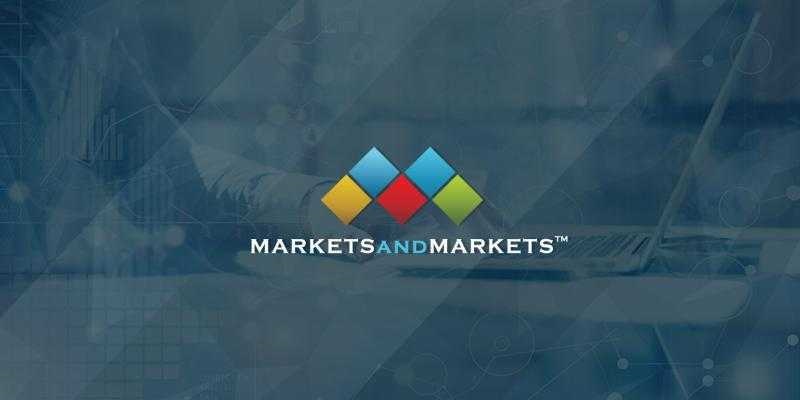
Monoclonal Antibody (mABs) Therapeutics Market in terms of revenue was estimated to be worth $252.6 billion in 2024 and is poised to reach $497.5 billion by 2029, growing at a CAGR of 14.5% from 2024 to 2029 according to a new report by MarketsandMarkets™. The monoclonal antibody therapeutics market is primarily driven by factors such as increasing prevalence of chronic diseases like cancer, autoimmune disorders, and infectious diseases. Technological advancements in antibody engineering and production processes also contribute significantly. Additionally, growing investments in research and development, coupled with expanding applications in personalized medicine, drive market growth. For example, drugs like rituximab (used for lymphoma and leukemia) and trastuzumab (used for breast cancer) exemplify the success and potential of monoclonal antibody therapeutics.
Download an Illustrative overview: https://www.marketsandmarkets.com/pdfdownloadNew.asp?id=115323820
The In-Vitro accounted for the largest share of production method in the monoclonal antibody therapeutics market in 2023.
By Production Method, the monoclonal antibody therapeutics market is segmented into in-vitro and in-vivo. In-Vitro for the largest share of the monoclonal antibody therapeutics market in 2023. The in vitro production method for monoclonal antibody therapeutics is propelled by factors such as scalability, cost-effectiveness, and reduced risk of contamination compared to traditional in vivo methods. Advancements in cell culture technologies and bioprocessing techniques have enhanced productivity and consistency. Moreover, regulatory agencies favor in vitro production for its quality control advantages.
The human source segment is expected to grow at a higher rate during the forecast period.
Based on sources, monoclonal antibody therapeutics market is segmented into human, humanized, chimeric and other sources. In 2023, human segment accounted for the largest share of the monoclonal antibody therapeutics market and humanized segment is expected to grow at a higher growth rate during the forecast period of 2024-2029. The human source monoclonal antibody therapeutics market is propelled by factors such as reduced immunogenicity, improved efficacy, and enhanced safety profiles compared to non-human sources. Increasing demand for precision medicine and personalized therapies also drives market growth. Technological advancements in antibody discovery platforms, such as phage display and transgenic mice, further accelerate development timelines. Examples include adalimumab (Humira) for autoimmune diseases and pembrolizumab (Keytruda) for cancer, highlighting the success and potential of human-sourced monoclonal antibody therapeutics in addressing diverse medical needs.
The autoimmune and inflammatory segment accounted for the largest share of the therapy area segment in the monoclonal antibody therapeutics market in 2023.
Based on therapy area the monoclonal antibody therapeutics market is segmented into autoimmune & inflammatory disorders, oncology, hematology, opthalmology and other therapy area. In 2023, autoimmune & inflammatory diseases segment dominated the monoclonal antibody therapeutics market. The monoclonal antibody therapeutics market for autoimmune and inflammatory diseases and cancer is driven by several factors. For autoimmune and inflammatory diseases, increasing prevalence, unmet medical needs, and advancements in targeted therapies propel market growth. Examples include adalimumab (Humira) for rheumatoid arthritis and infliximab (Remicade) for Crohn’s disease. In cancer, rising incidence rates, expanding treatment options, and personalized medicine approaches contribute to market expansion.
The hospitals accounted for the largest share of end user in the monoclonal antibody therapeutics market in 2023.
By end user, hospitals, long-term care facilities, and other end users. In 2023, hospitals accounted for the largest share of the monoclonal antibody therapeutics market. The monoclonal antibody therapeutics market for hospitals is driven by factors such as increasing patient admissions, advancements in healthcare infrastructure, and growing demand for advanced treatments. Examples include hospitals incorporating monoclonal antibody therapies like bevacizumab (Avastin) for cancer into their treatment regimens, enhancing patient care and outcomes
Europe is likely to grow at significant CAGR during forecast period of 2024-2029.
The monoclonal antibody therapeutics market is segmented into North America, Europe, Asia Pacific (APAC), Latin America (LATAM), the Middle East, and Africa. North America dominated the monoclonal antibody therapeutics market. Europe’s accelerated growth is attributed to several factors. Robust healthcare infrastructure, favorable government policies, increased research and development investments, rising prevalence of chronic diseases, and expanding adoption of innovative medical technologies. Additionally, collaborations between academia, industry, and regulatory bodies further drive advancements in healthcare, propelling Europe towards faster-paced growth in various medical sectors.
Request Sample Pages: https://www.marketsandmarkets.com/requestsampleNew.asp?id=115323820
Monoclonal Antibody (mABs) Therapeutics Market Dynamics:
Drivers:
- Advancements in biotechnology and genetic engineering
- Increasing demand for personalized medicine
- Growing product pipeline of mAb therapeutics
Restraints:
- Stringent regulatory approval process
- High cost of mAb treatments
Opportunities:
- Innovative therapeutic indications
- Rising technological advancements in antibody engineering
Challenge:
- Rising development & production costs
Key Market Players of Monoclonal Antibody (mABs) Therapeutics Industry:
Key players in the monoclonal antibody therapeutics market are F. Hoffmann-La Roche Ltd (Switzerland), Abbvie Inc. (US), Johnson & Johnson Services, Inc. (US), Merck & Co., Inc. (US), Bristol Myers Squibb Company (US), AstraZeneca (UK), Sanofi (France), Novartis AG (Switzerland), Amgen Inc. (US), Takeda Pharmaceutical Company Limited (Japan), GSK plc. (UK), Eli Lilly and Company (US), Regeneron Pharmaceuticals Inc. (US), and among others.
Get 10% Free Customization on this Report: https://www.marketsandmarkets.com/requestCustomizationNew.asp?id=115323820
Media Contact
Company Name: MarketsandMarkets™ Research Private Ltd.
Contact Person: Mr. Aashish Mehra
Email: Send Email
Phone: 18886006441
Address:630 Dundee Road Suite 430
City: Northbrook
State: IL 60062
Country: United States
Website: https://www.marketsandmarkets.com/Market-Reports/antibody-therapeutics-market-178852478.html
